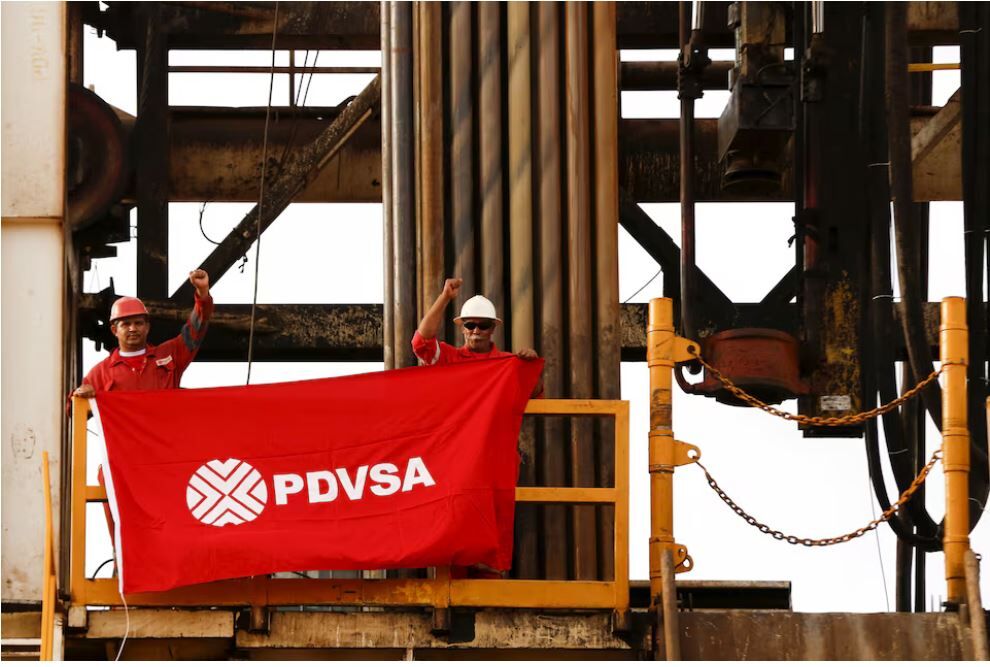Oil Output
Venezuela has seen its crude oil production grow in recent months to 914,000 b/d as recorded late last year, up 17% from previous reports announced by OPEC. It is however a long shot away from its 3 mb/d oil supply in the early 2000s. The current output levels in Venezuela show unresolved structural challenges that have been intensified due to underinvestment, widespread mismanagement, and restricted access to international markets due to sanctions.
While the US has lifted some sanctions on Venezuela to control global oil prices, this has helped the country’s production growth to some extent, but a significant increase in drilling and extraction capabilities will require significant foreign investment to fully realize its potential production capacity. Forecasts suggest that if these investments are properly implemented, production levels could increase to around 1 million b/d by the end of 2025.
Gas Production
Venezuela’s gas sector is also faced with significant challenges. It is estimated to hold the 7th largest gas reserves in the world with 6,300 bcm of gas deposits. Venezuela is currently supplying 22.6 mcm/d of gas, up from the preceding years. Some international companies are operating key projects there, but political stability and economic reforms are prelude to any improvement in gas production.
Oil Exports
Venezuela’s oil exports have seen a relative recovery in recent years, particularly in 2023-2024, when crude oil exports averaged around 550,000 b/d, generating approximately $4.04 billion in revenue. Despite continuing political challenges, including significant sanctions from the US, Venezuelan authorities have managed to expand their export market and gain traction in countries such as China and Turkey. In 2024, China became the largest recipient of Venezuelan oil, receiving 351,000 b/d, followed by the US with approximately 239,000 b/d.
These changes in export capacity have been attributed to Venezuela’s partnerships with major IOCs, including Chevron, which resumed operations in the country under special licensing agreements with the United States. Such partnerships are crucial for enhancing operational production and export capabilities, although they are precariously linked to broader geopolitical dynamics and evolving US policy on sanctions.
Challenges Ahead
Venezuela’s energy sector is grappling with multiple challenges: persistent hyperinflation, political instability, a lack of maintenance of existing infrastructure, and a climate of public distrust that is worrying both domestically and internationally. In addition, misallocation of resources, inadequate maintenance of aging infrastructure, and the loss of a skilled workforce have contributed to a decline in production levels. The inability to carry out necessary overhauls and upgrades to refineries and pipelines has also led to frequent production outages, significantly hampering the country’s export capacity.
Venezuela, on the other hand, has faced increasing challenges in exporting its heavy crude, characterized by the need to blend lighter crude to produce a marketable product. A persistent shortage of essential diluents complicates extraction and transportation processes, drives up operating costs, and limits export volumes.
At the same time, the Venezuelan economy is heavily dependent on oil, with oil accounting for almost 95 percent of export revenues. This suggests that the Venezuelan economy is overly dependent on oil revenues. At a time when such revenues are increasingly vulnerable to external shocks and fluctuations in global oil prices.
Moreover, the country’s significant energy exports have not been effectively translated into improved economic conditions for the people. Reports suggest that the decline in production levels over the past decade has exacerbated poverty levels and led to widespread shortages of basic goods within the country.
Future Outlook
Venezuela’s current energy landscape is characterized by fragile but slowly increasing oil and gas production, amid ongoing socio-economic challenges and international scrutiny. Given Venezuela’s vast resources, the potential for improving energy production and exports remains. This is contingent on effective governance, transparent economic reforms, and a stable foreign policy, particularly in the absence of US coercion.
With the world’s largest proven oil reserves, estimated at nearly 300 billion barrels, Venezuela has a huge opportunity to increase its oil production and exports. With global demand for oil expected to increase in the coming years, Venezuela’s vast reserves could play a key role in meeting this demand. If Venezuela can overcome its internal challenges and effectively use its resource wealth in a more sustainable manner, the path ahead could see the country reclaim its position as a vital energy supplier.
Shuaib Bahman
Int’l Affairs Analyst


Your Comment